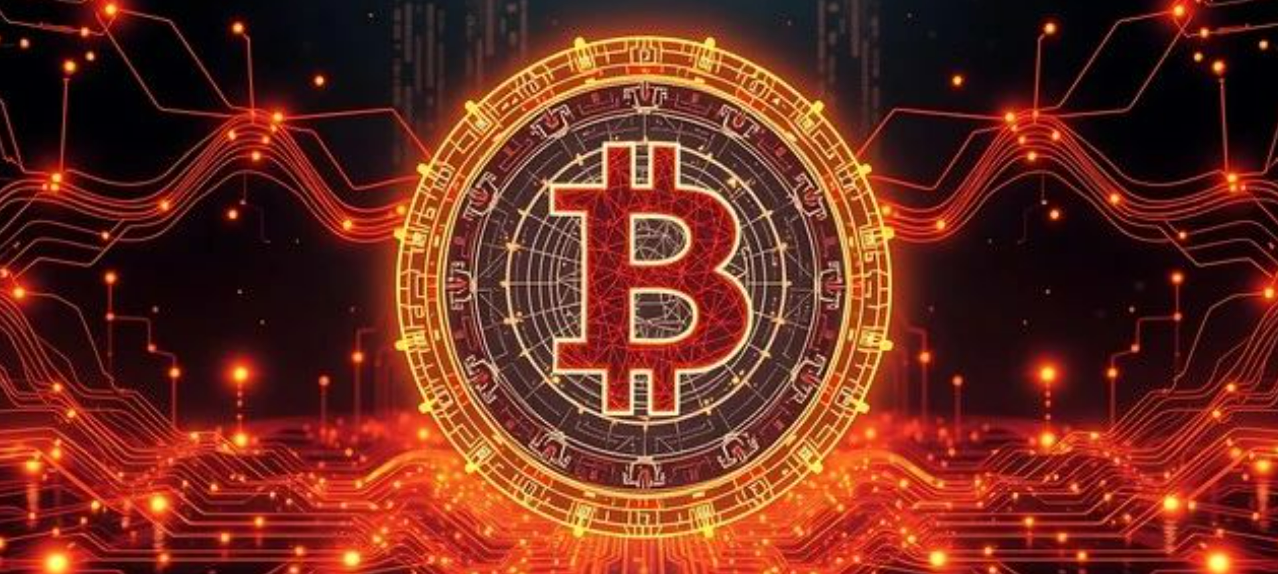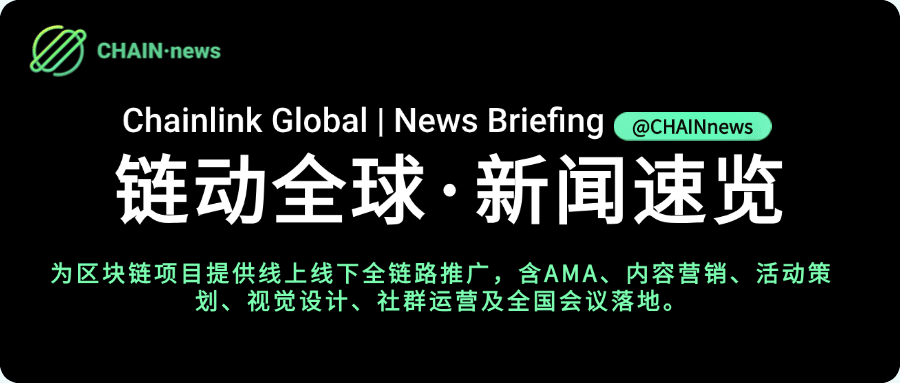Recently, the crypto space has entered a "period of concentrated policy windows"—the U.S. Department of Justice has given developers a "get out of jail free card," Donald Trump's son will soon speak at an Asian crypto conference, and South Korea and the UK plan to lift restrictions on crypto investments. These three major events not only affect short-term market sentiment but may also reshape the global crypto regulatory landscape. Below, we break down the events to help you understand the opportunities, impacts, and hidden risks behind each wave of good news.

1. U.S. Department of Justice "easing": Developers no longer need to fear "code being blamed," and DeFi innovation welcomes spring.
The U.S. Department of Justice (DOJ) has recently sent a key signal: As long as developers do not have criminal intent, merely writing code and developing decentralized platforms does not constitute a crime. This statement directly addresses a "pain point" in the crypto industry—many DeFi projects have previously been implicated in money laundering and illegal trading, with developers being unjustly involved; even the developer of Tornado Cash in 2022 faced sanctions, plunging the entire industry into a state of "innovation panic."
1. Core significance: Providing developers with a "sense of security" and giving innovation a "green light."
Reducing developer risks: Clarifying "code neutrality" means developers no longer need to worry about "platforms being misused by bad actors, leading to their imprisonment." For instance, if someone uses a particular DEX for illegal transactions, as long as the developer did not participate or intentionally design vulnerabilities, they will not bear responsibility. This is equivalent to "shedding shackles" for decentralized projects like DeFi, NFTs, and DAOs.
Activating innovation vitality: The U.S. is the global center for crypto innovation; previously, due to regulatory ambiguity, many teams hesitated to fully engage in projects. Now that policies are easing, it is likely to attract more developers and capital, especially in the DeFi track (such as creating DEXs and lending protocols).
Regulatory thinking shifts: Compared to the "one-size-fits-all" sanctions of Tornado Cash in 2022, this time there is a clear "differentiated treatment"—severe punishment for malicious wrongdoers while protecting innocent innovators, marking a shift in U.S. crypto regulation from "harsh repression" to "precise governance."
2. Market impact: Short-term benefits DeFi tokens, long-term solidifies U.S. innovation position.
Short-term: Developer confidence is boosted, DeFi projects (like UNI, AAVE) and blockchain infrastructure projects (ETH, SOL) may attract funding, leading to short-term price increases; the development and deployment speed of decentralized platforms will accelerate, with new DEXs and NFT markets likely to launch intensively.
Long-term: Avoiding the "outflow" of U.S. crypto innovation—previously, many teams relocated to places like Singapore and Switzerland due to regulatory fears; now that policies are clear, they are likely to remain in the U.S., helping maintain the country's leading position in global crypto technology.
3. Hidden risks: "Criminal intent" is difficult to define, compliance must still be vigilant.
The biggest problem is the lack of clear standards for "criminal intent": For example, if developers know that a platform may be misused but do not stop it, does that count as "intent"? This may lead to legal disputes in the future, requiring more detailed rules.
Regulation has not completely "let go": The DOJ has only stated that "developers without criminal intent will not be punished," but will strengthen scrutiny of the actual operations of platforms, such as requiring projects to implement KYC and anti-money laundering (AML) measures. If developers do not comply, they will still face issues.

2. Donald Trump's son speaks at the Asian crypto conference: U.S. political figures endorsing, policy expectations heating the market.
Donald Trump's son (most likely Donald Trump Jr. or Eric Trump) is confirmed to speak at the "Bitcoin Asia" conference in Bali, Indonesia, on August 29. It's worth noting that the Trump family has been very positive towards crypto in recent years—former President Trump not only signed an executive order supporting the 401(k) plan for digital assets but has also publicly stated multiple times that "Bitcoin and blockchain are the future." The son's appearance carries significant implications.
1. Core significance: Political endorsement + connecting with the Asian market, a dual boost.
Releasing policy good news expectations: Currently, the Republican Party in the U.S. has a possibility of regaining power, and the Trump family's statements send a signal to the market that "the U.S. may introduce more crypto-friendly policies in the future," such as tax cuts on crypto assets, expanding the range of ETFs, and even relaxing regulations on stablecoins.
Political influence driving the market: The Trump family has significant influence among conservatives and in the business community in the U.S.; their support for crypto will attract more attention from institutions and retail investors, especially traditional funds that have previously taken a wait-and-see approach.
Facilitating U.S.-Asia crypto cooperation: Bitcoin Asia is Asia's top crypto conference, and Asia is the most active region for crypto trading globally (such as Singapore, South Korea, and Indonesia). This speech may promote cooperation between U.S. crypto projects and Asian capital, for instance, U.S. DeFi projects entering the Asian market and Asian capital investing in U.S. crypto infrastructure.
2. Market impact: Short-term speculation on expectations, long-term hope for policy implementation.
Short-term: The market will likely "speculate on policy expectations" in advance; Bitcoin (BTC), as a "crypto barometer," may rise first; tokens closely related to U.S. policy (like stablecoins USDC, USDT, and domestic U.S. crypto projects) will also attract attention; projects in the Asian market (like those within the Solana ecosystem and Asian teams in the Avalanche ecosystem) may heat up due to "cooperation expectations."
Long-term: If the Trump family indeed pushes for crypto-friendly policies (like relaxing ETF rules and simplifying compliance processes), the U.S. could attract more global institutional capital, further solidifying its position as a "crypto financial center," with traditional banks and asset management companies possibly increasing their crypto investments.
3. Hidden risks: "Pie in the sky" may be greater than substance, potentially leading to a pullback.
The worst fear is that the speech will be "loud but empty": If it only states that "crypto is good" without mentioning any substantial policies (like tax cuts or ETF details), the market may pull back due to "expectations falling short," and Bitcoin and major altcoins may experience a downturn.
Political controversy risk: The Trump family's stance on crypto may provoke opposition from the Democratic Party, hindering policy implementation—for example, the proposed ETF bill may not pass in Congress, resulting in "false hopes."

3. South Korea and the UK ease crypto investment: The two major markets in Asia and Europe open their doors, with retail and institutional investors entering the field.
On one side, South Korea is considering lifting the ban on crypto ETFs, while on the other, the UK plans to allow retail investors to invest in crypto ETNs—both countries are "key players" in the global crypto market, and the policy relaxation essentially opens "two new gates" for global crypto investment.
1. Core significance: Two major markets "break the ice," integrating crypto into mainstream finance.
South Korea: Activating the potential of a "trading powerhouse": South Korea ranks among the top three countries globally for crypto trading volume. Previously, due to the ETF ban, many retail investors could only invest through "over-the-counter trading" or foreign platforms, which was both risky and inconvenient. With the lifting of the ban, retail and institutional investors can buy Bitcoin and Ethereum through compliant ETFs, significantly increasing market participation, such as the possible emergence of a "Korean version of Bitcoin ETF," with daily subscriptions exceeding 100 million.
UK: Seizing the European crypto hub: The UK previously had strict restrictions on crypto ETNs (similar to ETFs), preventing retail investors from purchasing. Now, with the easing, retail investors no longer need to go to high-risk small platforms and can directly buy ETNs through brokers, significantly lowering the barriers. The UK aims to get ahead of Germany and France, becoming Europe's "crypto investment hub."
Global regulatory "turning signal": This corresponds with the U.S. approval of a Bitcoin spot ETF in 2024, indicating that global regulation is shifting from "confronting crypto" to "integrating crypto"—no longer viewing crypto as a "flood beast," but rather allowing it to blend into the traditional financial system through compliant products.
2. Market impact: Short-term heats up local projects, long-term attracts global capital.
Short-term: Local crypto projects in South Korea (like Klaytn and the Terra ecosystem) will gain attention due to "local market openings," while Bitcoin and Ethereum may rise due to "ETF subscription funds"; after the UK opens ETNs, retail funds from Europe may flow in, benefiting stablecoins, Layer 1 tokens (ETH, SOL), and local European crypto projects (like Polygon and Cardano).
Long-term: Compliance channels in South Korea and the UK will attract global capital—such as sovereign funds from the Middle East and hedge funds from the U.S.—potentially through South Korean ETFs and UK ETNs, mainstreaming crypto assets, with pension and insurance funds possibly allocating small amounts to Bitcoin ETFs to reduce market volatility.
3. Hidden risks: Slow policy implementation + retail speculation may exacerbate volatility.
Policy details may "stumble": For example, the lifting of South Korea's ETF ban needs to clarify tax calculations and anti-money laundering procedures; if these details are not resolved, the policy may be delayed until next year. The UK's ETN relaxation may also be postponed due to "retail protection" disputes, such as concerns that retail investors may not understand the risks and demanding "investment limits."
Retail entry sparks speculation: Retail investors in South Korea and the UK love to "buy high and sell low"; if a large number of retail investors rush in to trade crypto ETNs/ETFs, it may amplify price volatility, such as an ETN rising 20% in one day and then falling 15%, becoming a "retail trap."
Summary: With threefold good news, what should we pay attention to? What should we be cautious about?

1. Directions worth noting.
U.S. DeFi track: Benefiting from the DOJ's easing, leading DeFi tokens like UNI, AAVE, Curve, and infrastructure tokens like ETH and SOL may present short-term speculative opportunities.
Bitcoin (BTC): It serves as both a "barometer" for U.S. political figures and the core asset for South Korean and UK ETFs/ETNs, making it the primary choice for funds.
Local projects in South Korea and the UK: Projects like Klaytn (South Korea) and Polygon (European team) may gain traction due to local policy dividends.
2. Risks that must be heeded.
Policy "expectation gap": Especially with the speech by Trump's son and the implementation of South Korean and UK policies, if they do not meet expectations, quickly take profits and do not be greedy.
Compliance "pitfalls": Developers should not think that the U.S. Department of Justice's easing means they can "sit back and relax"; necessary KYC and anti-money laundering measures must still be followed. Investors should understand the rules (such as fees and redemption limits) before buying South Korean and UK ETFs/ETNs, to avoid compliance traps.
Short-term volatility: After a period of concentrated good news, the market may experience a "sell-off," such as Bitcoin rising and then retracing 10%-15%; it's essential to control positions and avoid chasing highs.

Disclaimer: The content of this article is for reference only and does not constitute any investment advice. Investors should rationally assess cryptocurrency investments based on their risk tolerance and investment goals and should not blindly follow trends.



